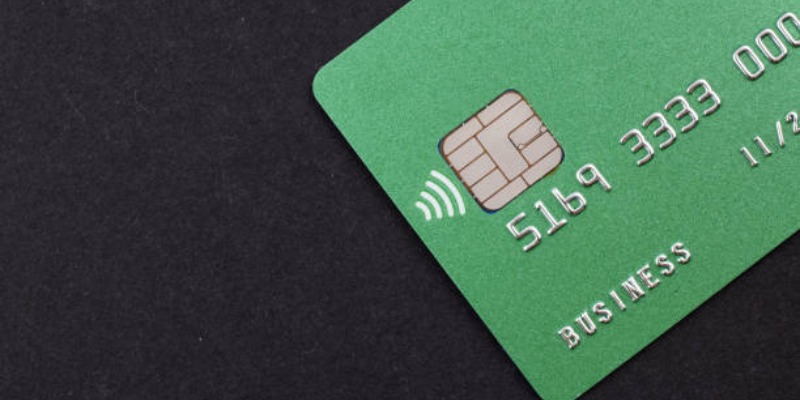Travel
Credit Card Churning: Is It Worth the Risk?
Credit card churning is a quick way to earn free travel, cash back, and points. Some people do it to rack up bonuses. Others view it as a clever financial manoeuvre. But is this popular trend as good as it looks?
Credit card churning is a quick way to earn free travel, cash back, and points. Some people do it to rack up bonuses. Others view it as a clever financial manoeuvre. But is this popular trend as good as it looks?
Let’s explore what credit card churning is, how it is practised, and the real risks associated with it. This will enable anyone considering it to make an informed decision.
What Is Credit Card Churning?
Credit card churning is the process of obtaining new credit cards to receive welcome bonuses and rewards. The bonuses are usually in the form of points, miles, or cash. To receive the bonus, customers typically spend a specified amount of money within the first few months after their account is opened. After getting the bonus, some people close the card and apply for another card.

For example, an individual can obtain a new credit card that offers 60,000 points for spending $3,000 within three months. Having received the points, one can call to cancel the card and sign up for an identical card.
Why People Like It
There are a few reasons why some people churn out credit cards:
Big rewards: Some welcome offers are worth hundreds of dollars or even more when used for travel or gift cards.
Free travel: Travel hackers often use miles to fly for free or stay at hotels without incurring any costs.
Cash back: Some cards offer cash back instead of points, which can be
redeemed at any location.
For individuals who manage their finances effectively, it is an easy way to earn extra income.
What Card Issuers Are Doing About It
Credit card companies are aware that people tend to switch cards frequently. And they are not happy about it. That's why many companies are creating rules to stop it.
Some banks limit the frequency with which someone can receive a bonus. Others may block new applications if they notice an excessive number of new cards being issued within a short period. A few card issuers may even revoke the bonus if they believe it was earned through churning.
There's also a rule known as the 5/24 rule. This means if someone opens five or more cards in 24 months, some banks will not approve new cards. Other companies track past card openings, even if they are closed now.
Risks That Can Hurt
Credit card churning comes with a long list of risks. Some of them may not appear immediately. But over time, they can cause real problems.
1. Damage to Credit Score
Every time someone applies for a new credit card, the bank checks their credit. These are called hard inquiries. Too many of them can lower a person's credit score. The more cards someone opens, the greater the impact can be.
Closing cards also hurts the average length of credit history. This can lower scores, too. And if a card is closed with a balance, the credit usage rate may increase, which can further harm scores.

2. Missed Payments and Fees
When juggling multiple tasks, it's easy to overlook due dates. A missed payment can lead to late fees and interest charges. Even worse, it can stay on a credit report for years.
Some cards also have annual fees. If someone opens a premium card solely for the bonus, they might forget to cancel it before the cost is incurred.
3. Overspending to Meet Bonus Rules
To get the sign-up bonus, people often have to spend thousands of dollars within a short time. Some may pay more than they can afford to reach the goal. This can lead to debt, which defeats the whole point of earning rewards.
4. Getting Denied for Future Cards or Loans
Too many new cards and hard inquiries can make someone look risky to banks. This might lead to getting denied for future credit cards, auto loans, or even a mortgage. Some people may also lose out on the best interest rates if their credit score falls.
5. Account Shutdowns
Banks are smart. If they notice someone opening and closing cards too often, they might shut down all the person’s accounts. This could mean losing all points and cash back stored in those accounts. In some cases, people are even banned from applying for any future cards with that bank.
The Rewards Are Not Always As Good As They Seem
Many credit card bonuses sound better than they are. Sometimes, the points don't go far. A flight that's advertised as free may still come with high taxes and fees. Hotel points may not cover all the costs. Some cards also have blackout dates or limited options for using points.
Plus, the real value depends on how the points are used. Travel points may be worth more if booked in a specific way, but that requires time and expertise. For busy people, it might not be worth the trouble.
Not Everyone Can Win
Credit card churning may not be suitable for everyone. It works best for people who:
Have excellent credit
Pay off their full balance each month
Can track spending closely
Stay organized with due dates
Avoid spending to get points
For anyone who doesn’t meet these rules, the risks are too high.
When Churning Goes Wrong
Some people attempt to use multiple credit cards, only to end up deep in debt. Others damage their credit score without realizing it. A few users discovered that their accounts were shut down overnight, resulting in the loss of all the points they had worked for.
In some cases, people get stuck with cards they can’t cancel because of the damage it would do to their credit. Or they find themselves paying hundreds of dollars in annual fees they didn’t expect.
These are real risks, and they occur more frequently than most people think.
More Innovative Ways To Use Credit Cards
Instead of chasing dozens of cards, there are safer ways to use credit cards and still earn rewards:
Pick one or two solid cards that match your spending habits
Use them for everyday expenses already planned
Pay the full balance every month
Avoid cards with high annual fees unless the perks are worth it
Use points wisely, like for travel during off-peak seasons or for gift cards with full-value
This way, users can still enjoy rewards without putting their credit or finances at risk.
Who Should Avoid Churning
Some people should avoid credit card churning altogether. That includes:
People with fair or poor credit
Anyone who carries a balance on their card
People who often pay bills late
Those who don’t want to deal with tracking dates and fine print
For these groups, the downsides significantly outweigh the benefits.
Is It Ever Worth It?
Credit card churning can bring in rewards, but it’s not free money. It takes time, effort, and strong credit habits. One small mistake can lead to debt, fees, or a lower credit score.
For some people, it works well—if they treat it like a full-time hobby. But for most, the risks are too high. Sticking with one or two cards and using them wisely may not sound exciting, but it’s a lot safer in the long run.
Trending








